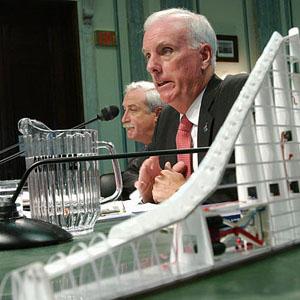
 How_Failure_Can_Lead_to_Long-Lasting_Knowledge.zip
How_Failure_Can_Lead_to_Long-Lasting_Knowledge.zip
This is the VOA Special English Education Report.
No one likes to make mistakes. But a new study says organizations learn more from their failures than their successes, and keep that knowledge longer.
어떤 이도 실수하기를 좋아하지 않습니다. 그러나 새로운 연구에 의하면 조직들은 실수로부터 더 많은 것을 배우고 그 지식은 더 오래 유지 된다고 한다.
One of the researchers was Vinit Desai, an assistant professor at the University of Colorado Denver Business School. He worked with Peter Madsen from the Marriott School of Management at Brigham Young University in Utah.
연구원들 중 한 명은 Vinit Desai, 즉 Colorado Denver Business School 대학의 조교수입니다. 그는 Brigham Young 대학의 Marriott School of Management의 Peter Madsen과 함께 연구했습니다.
They did not find much long-term "organizational learning" from success. It is possible, they say. But Professor Desai says they found that knowledge gained from failure lasts for years.
그들은 성공으로부터의 장기간 조직적 학습을 많이 발견하지는 못했습니다. 그러나 Desai 교수는 실패로부터 얻은 지식은 오랫동안 지속된다는 것을 발견했다고 합니다.
He says organizations should treat failures as a learning opportunity and not try to ignore them.
그는 조직들은 실패들을 무시하려하지 말고 학습기회로 취급해야 한다고 말합니다.
The study looked at companies and organizations that launch satellites and other space vehicles. Professor Desai compared two shuttle flights.
그 연구는 인공위성과 다른 우주선들을 발사한 회사와 조직들을 관찰 하였습니다.
In two thousand two, a piece of insulating material broke off during launch and damaged a rocket on the Atlantis. Still, the flight was considered a success.
2002년에 한 조각의 절연물질이 발사동안 부서져나갔고 Atlantis호의 추진체에 손상을 끼쳤다. 그럼에도 그 비행은 성공으로 여겨졌다.
Then, in early two thousand three, a piece of insulation struck the Columbia during launch. This time, the shuttle broke apart on re-entry and the seven crew members died. NASA officials suspended all flights and an investigation led to suggested changes.
그 후, 2003년 초, 절연 한 조각이 출발 할 때 Columbia호를 강타했다. 이때, 우주왕복선은 (지구대기권으로) 재진입 할 때 해체되어 탑승자 7명의 우주비행사가 죽었습니다. NASA 관계자들은 모든 비행을 중지했고, 조사이후 변경이 제안되었다.
Professor Desai says the search for solutions after a failure can make leaders more open-minded. He points to airlines as an example of an industry that has learned from failures in the past.
Desai교수는 실패 후에 해결책을 찾는 것이 지도자들을 더 오픈 마인드를 갖게 해 줄 수 있다고 한다. 그는 과거의 실패로 부터 배운 업계의 일례로 여객항공사를 들고 있다.
He advises organizations to look for useful information in small failures and failures they avoided. He also urges leaders to encourage the open sharing of information. The study appeared in the Academy of Management Journal.
그는 조직들이 작은 실패와 그들이 회피했던 실패에서 유용한 정보를 찾도록 충고한다. 그는 또한 지도자들이 정보의 개방공개를 장려하도록 촉구한다. 이 연구는 Academy of Management Journal지에 실렸다.
The mistakes we learn from do not have to be our own. We recently asked people on our Facebook page to tell us a time they had done something really silly.
우리가 배우는 실수는 우리 자신의 것일 필요는 없다(다른이의 것을 통해서도 배운다). 우리는 최근에 Facebook 페이지에서 사람들에게 그들은 정말 우스운 것을 하고 있는 때를 우리에게 말해달라고 요청했습니다.
Fabricio Cimino wrote: Not long ago I wanted to watch TV, but it wouldn't turn on, so I did everything I could to start it. Thirty minutes later my mum shows up and, passing by, says to me "Did you try plugging it?" I was like "I'm just dusting, Mum!" so she wouldn't notice how dumb I am sometimes!
Fabricio Cimino는 이렇게 썼다: 얼마 전 텔레비전 보기를 원했는데, 켤 수가 없었습니다, 그래서 나는 켤 수 있는 모든 짓을 다해봤죠. 30분 후에 엄마가 지나가시다가 이렇게 물으셨습니다. "전기코드 끼웠어?" 저는 "그냥 먼저 닦는 중이예요. 엄마!"라고 말했고, 그래서 엄마는 내가 가끔 얼마나 바고 같은지 모르셨습니다.
Bruno Kanieski da Silva told about a time he looked everywhere for his key. It was in his pocket. He wrote: I always promise I will never do it again, but after a few weeks ... where is my wallet? For sure it will be in a very logical place.
Bruno Kaniesk da Silva는 그의 차의 키를 찾기 위해 이곳저곳을 뒤져본 일을 얘기했다. 키는 자신의 주머니 속에 있었다. 그는 이렇게 썼다: 나는 결코 다시는 이런 일이 일어나지 않도록 하겠다라고 항상 맹세하지만, 몇 주가 지나면..., 지갑이 어딨지? 분명히 그것은 아주 논리적인 장소(있을 만한 곳:바보같은 짓을 했다)에 있을 것이다.
You can find more comments like these on Facebook at VOA Learning English. And that's the VOA Special English Education Report, written by Avi Arditti. I'm Steve Ember.
당신은 VOA Learning English에 Facebook에서 이들 같은 더 많은 의견을 찾을 수 있다. 그리고 이것은 VOA 스페셜잉글리쉬의 교육뉴스이고, Avi Arditti가 썼으며, 저는 Steve Ember입니다.






 English
English 한국어
한국어
